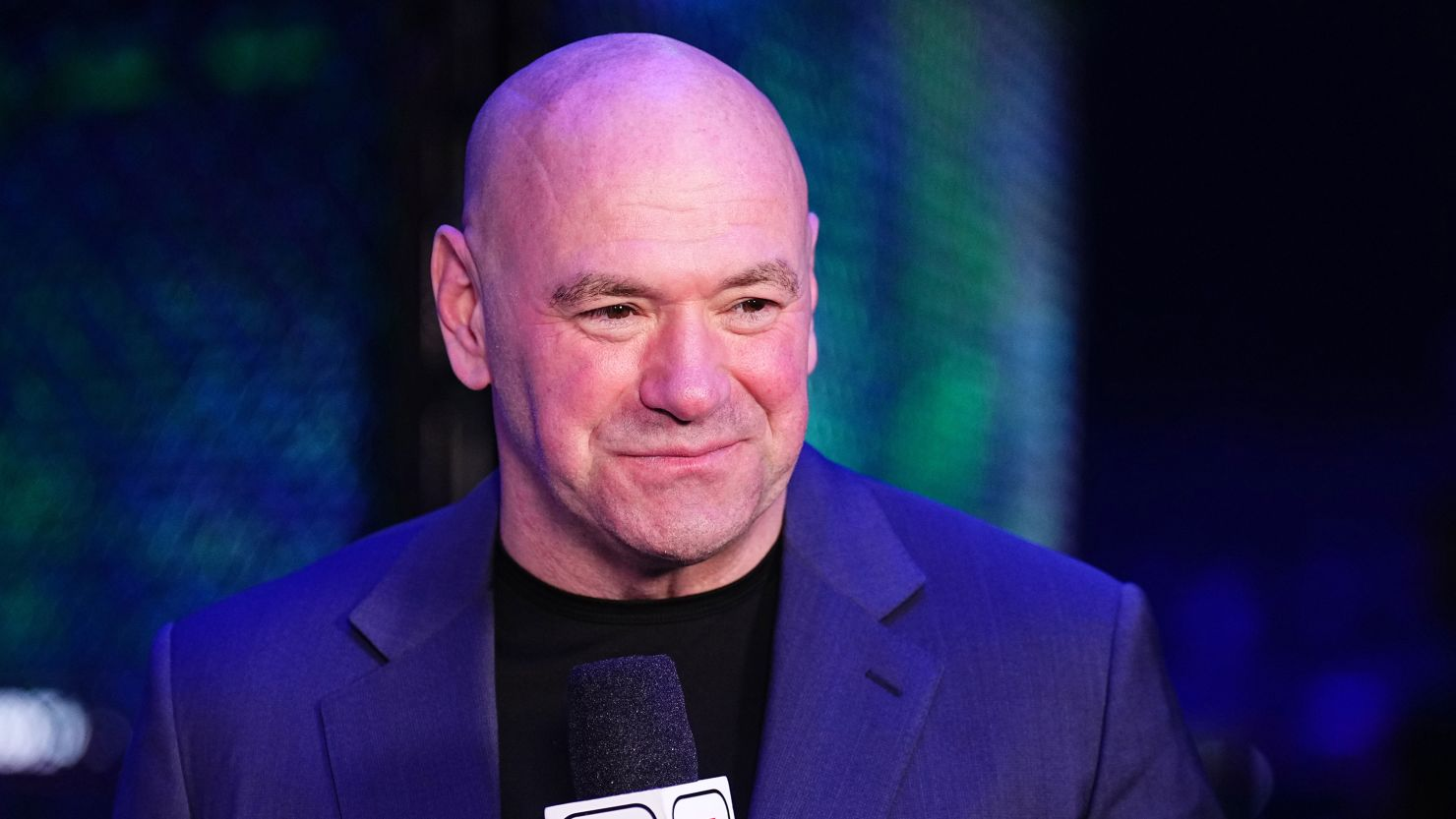Dana White is the president of the Ultimate Fighting Championship (UFC), the world’s leading mixed martial arts (MMA) organization. He has played a crucial role in transforming UFC from a struggling company into a billion-dollar business. His leadership, marketing skills, and determination have helped shape UFC into what it is today.
Born on July 28, 1969, in Manchester, Connecticut, Dana White was always passionate about combat sports. He grew up watching boxing and became involved in various forms of martial arts at a young age. His early exposure to fighting played a significant role in his later success. White was not just a businessman; he had a deep love for the sport. This combination of passion and business acumen allowed him to lead UFC to global success.
Early Life and Background
Dana White had a challenging childhood, moving between different cities due to his family’s financial struggles. Despite the hardships, he remained focused on his dreams and never lost his passion for combat sports. His early experiences shaped his resilience and determination, which later became key traits in his business career. Growing up, White saw the difficulties fighters faced, which made him more determined to change the fight industry.
During his teenage years, White became heavily involved in boxing and even considered a career in the sport. However, he soon realized that his true talent lay in promoting and managing fighters. This realization pushed him toward a future where he could make a lasting impact. White’s early exposure to the business side of combat sports gave him a unique advantage when he eventually took over the UFC.
How Dana White Got Into the Fight Business
Before becoming the face of UFC, Dana White started as a manager for fighters. He worked closely with well-known MMA athletes like Chuck Liddell and Tito Ortiz. Managing these fighters gave him firsthand experience in the industry and helped him build valuable connections. His ability to network and recognize talent set him apart from others in the field.
While managing fighters, White learned about the business side of MMA. He saw the struggles that fighters faced, including poor pay and lack of opportunities. This motivated him to make a change. When the opportunity arose to take over UFC, he seized it without hesitation, knowing he could turn it into a massive success.
Buying the UFC: A Game-Changing Decision
In 2001, Dana White discovered that the UFC was in financial trouble. The company was struggling to stay afloat and was losing money rapidly. White saw an opportunity and approached his childhood friends, Lorenzo and Frank Fertitta, with a proposal. He convinced them to buy UFC for just $2 million, a move that would later prove to be one of the best investments in sports history.
After acquiring UFC, White and the Fertitta brothers focused on revamping the organization. They introduced new rules, improved fighter contracts, and secured television deals. Their efforts quickly paid off, and UFC began to grow in popularity. What once seemed like a risky investment soon became a multi-billion-dollar empire.
UFC’s Growth Under Dana White
Dana White’s leadership transformed UFC into a powerhouse in the sports world. He focused on expanding the company’s reach, making it accessible to fans across the globe. One of his key strategies was signing high-profile fighters who could attract large audiences. Fighters like Conor McGregor, Khabib Nurmagomedov, and Ronda Rousey became household names under his management.
White also ensured that UFC events were action-packed and entertaining. He introduced exciting matchups, promoted rivalries, and organized major pay-per-view events. These efforts helped UFC gain millions of fans worldwide. The organization’s rapid growth turned it into a dominant force in combat sports, rivaling even boxing.
The Rise of MMA as a Sport
Before Dana White took over, MMA was not widely accepted as a mainstream sport. Many viewed it as too violent, and some states even banned it. White knew that for MMA to succeed, it needed structure and legitimacy. He worked tirelessly to implement new regulations, making the sport safer and more professional.
His efforts paid off, as MMA gradually gained recognition. White worked with athletic commissions to legalize the sport in different states and countries. Today, MMA is one of the fastest-growing sports in the world, and much of that success is credited to White’s dedication and vision.
Dana White’s Tough Business Decisions
As the head of UFC, Dana White is known for making tough decisions. Whether it’s cutting fighters, negotiating contracts, or handling controversies, he always prioritizes the company’s success. His straightforward and sometimes aggressive approach has earned him both respect and criticism.
White is not afraid to take risks. He has made bold moves, such as launching UFC Fight Pass, signing cross-promotional deals, and expanding UFC into international markets. While some of his decisions have sparked debates, they have ultimately helped UFC grow into a global brand.
The Ultimate Fighter: A Turning Point
In 2005, White launched “The Ultimate Fighter,” a reality TV show that introduced MMA to a broader audience. The show featured aspiring fighters competing for a UFC contract. It became an instant hit, drawing millions of viewers.
The show played a crucial role in popularizing UFC. It produced legendary fighters like Forrest Griffin and Rashad Evans. Thanks to “The Ultimate Fighter,” UFC gained mainstream recognition and attracted new fans to the sport.
Expanding UFC to Global Markets
Dana White’s vision for UFC was not limited to the United States. He wanted to make MMA a global sport. Under his leadership, UFC expanded to countries like Brazil, Canada, China, and the Middle East.
By hosting events worldwide, White brought UFC to new audiences. He also signed international fighters, making the sport more diverse. Today, UFC events are held in different countries, proving that White’s expansion strategy was a success.
UFC’s Partnership with ESPN
One of Dana White’s biggest business moves was securing a partnership with ESPN. This deal brought UFC to a larger audience and solidified its place as a mainstream sport. Having UFC events broadcast on ESPN increased its credibility and visibility.
This partnership helped UFC attract more sponsors and gain new fans. White’s ability to negotiate such a significant deal demonstrated his sharp business acumen and commitment to growing the sport.
Dana White’s Personal Life and Philanthropy
Outside of UFC, Dana White is a family man and philanthropist. He often donates to charities and helps people in need. Despite his tough business persona, he has a generous side that many people admire.
White has contributed to various causes, including medical research and veteran support programs. His efforts to give back to the community show a different side of him beyond the fight business.
What’s Next for Dana White
Even after decades in the business, Dana White shows no signs of slowing down. He continues to push UFC to new heights, introducing innovative ideas and expanding the company’s reach. He has hinted at plans, including more international events and partnerships with other sports organizations.
White remains passionate about UFC and combat sports. His dedication ensures that UFC will continue to grow for years to come. As the sport evolves, White’s leadership will remain crucial in shaping its future.
Conclusion
Dana White’s journey from a small-town kid to the president of UFC is truly inspiring. His dedication, hard work, and business acumen have shaped the MMA world. Without his efforts, UFC might not have become the global powerhouse it is today.
Under his leadership, UFC has reached new heights, turning fighters into superstars and making MMA a respected sport. As he continues to innovate and expand, his legacy as one of the most influential figures in combat sports remains strong. His story is a testament to the power of vision, determination, and the willingness to take risks.





